Find Help
More Items From Ergsy search
-

Myalgic encephalomyelitis or chronic fatigue syndrome (ME/CFS) | NHS
Relevance: 100%
-

Is chronic fatigue syndrome contagious?
Relevance: 82%
-
What is chronic fatigue syndrome?
Relevance: 79%
-

What causes chronic fatigue syndrome?
Relevance: 79%
-
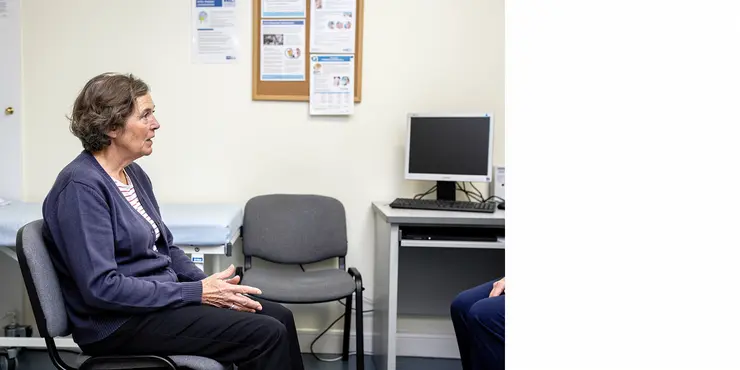
Are there psychological aspects to chronic fatigue syndrome?
Relevance: 72%
-
Can children develop chronic fatigue syndrome?
Relevance: 72%
-
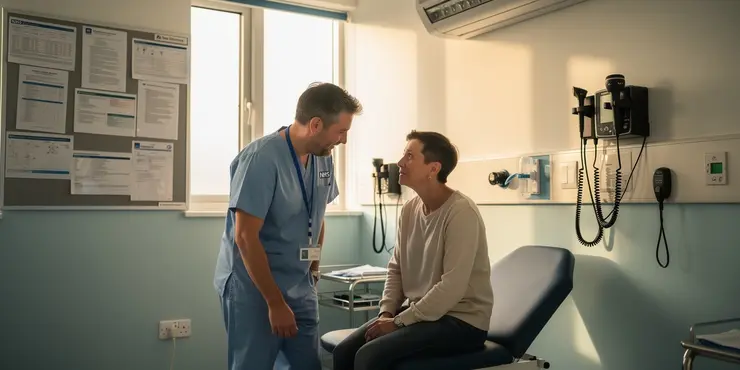
What role do infections play in chronic fatigue syndrome?
Relevance: 70%
-
Is chronic fatigue syndrome a mental illness?
Relevance: 70%
-

Who is at risk of developing chronic fatigue syndrome?
Relevance: 67%
-
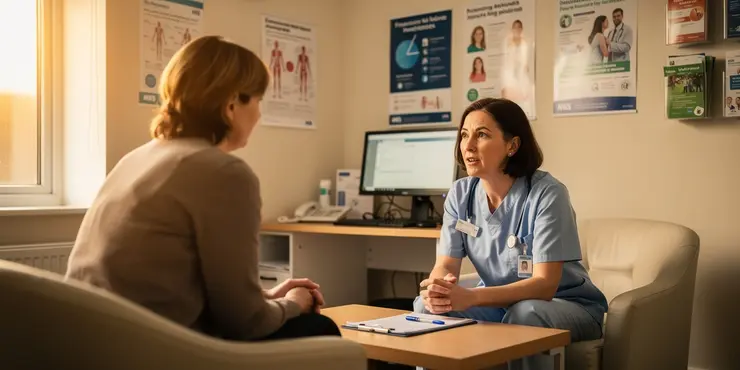
How is chronic fatigue syndrome treated?
Relevance: 61%
-

Is there a cure for chronic fatigue syndrome?
Relevance: 61%
-
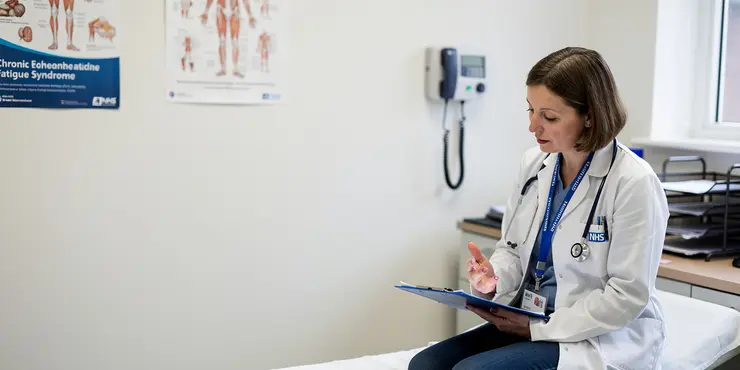
How is chronic fatigue syndrome diagnosed?
Relevance: 58%
-

Can chronic fatigue syndrome be managed with lifestyle changes?
Relevance: 52%
-
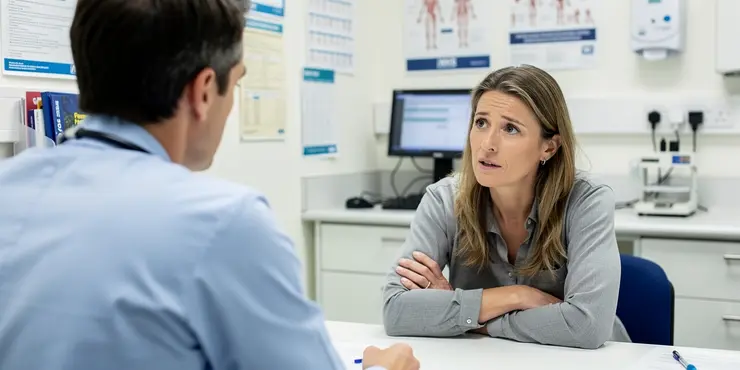
How does CFS differ from regular fatigue?
Relevance: 45%
-
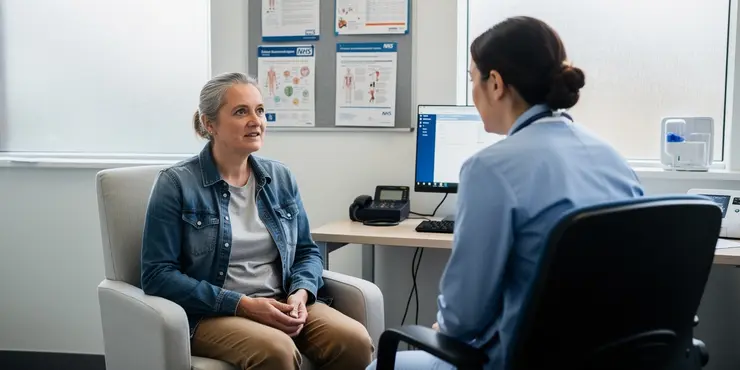
How does post-exertional malaise relate to CFS?
Relevance: 32%
-
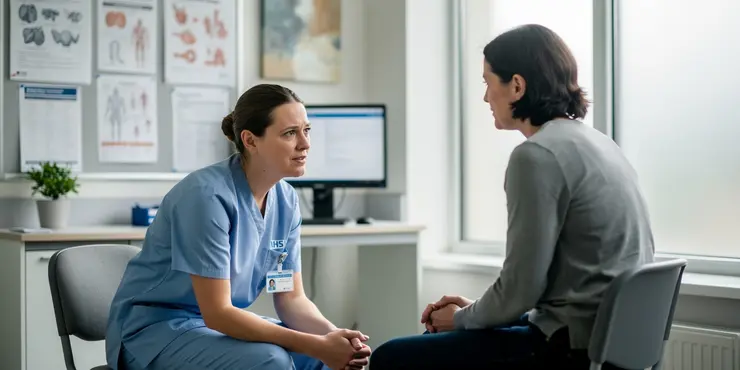
What is the prognosis for someone with CFS?
Relevance: 32%
-
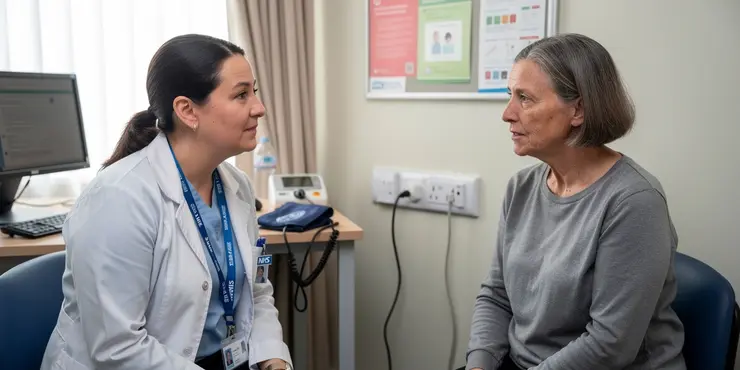
Can CFS be prevented?
Relevance: 30%
-
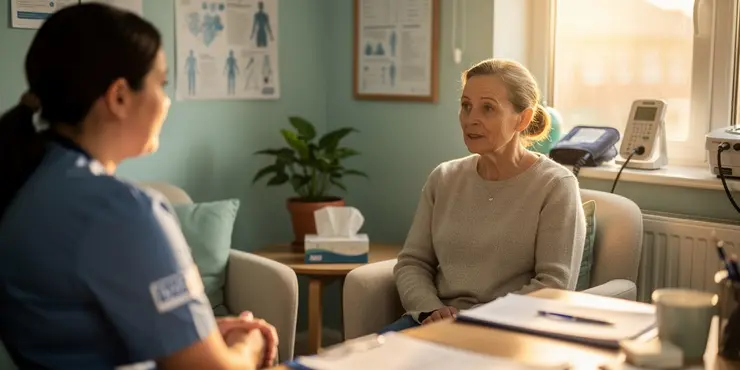
What is Cushing's syndrome?
Relevance: 27%
-
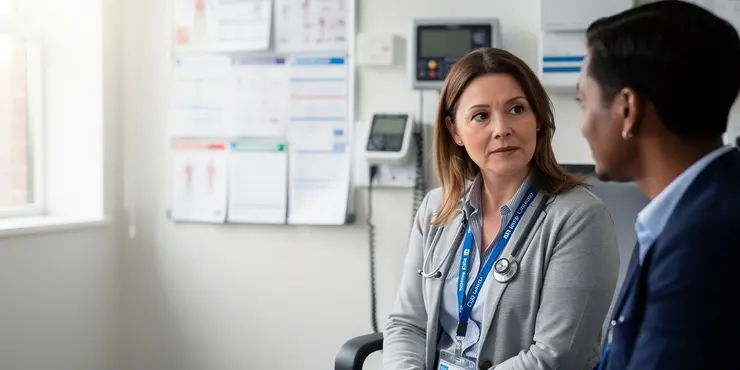
What is irritable bowel syndrome (IBS)?
Relevance: 25%
-
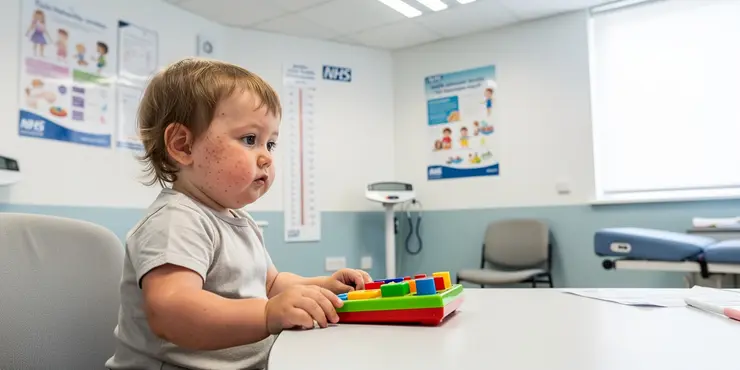
Prader-Willi Syndrome | NHS
Relevance: 24%
-

Can fatigue result in dangerous driving?
Relevance: 23%
-

Carpal Tunnel Syndrome
Relevance: 23%
-
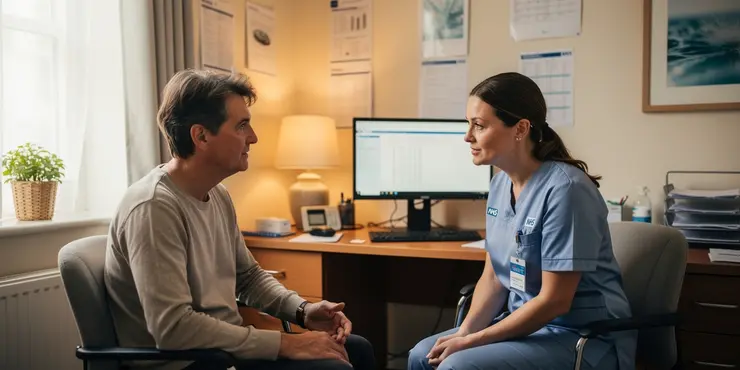
Munchausen's syndrome | NHS
Relevance: 23%
-
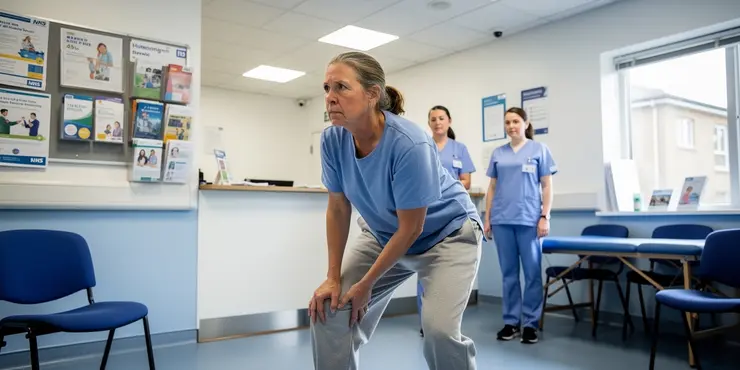
Does physical exercise help people with CFS?
Relevance: 23%
-
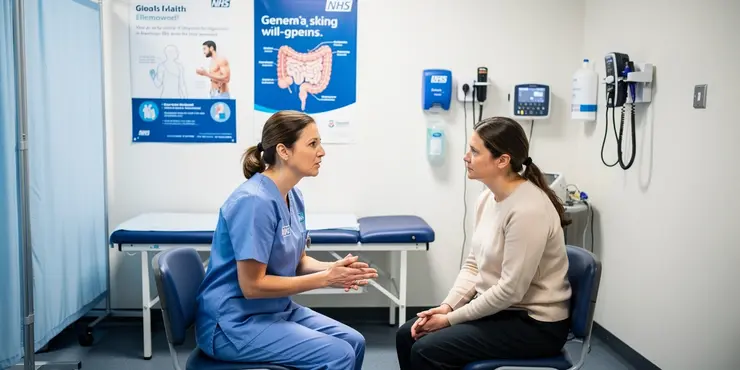
Symptoms of irritable bowel syndrome (IBS)
Relevance: 23%
-
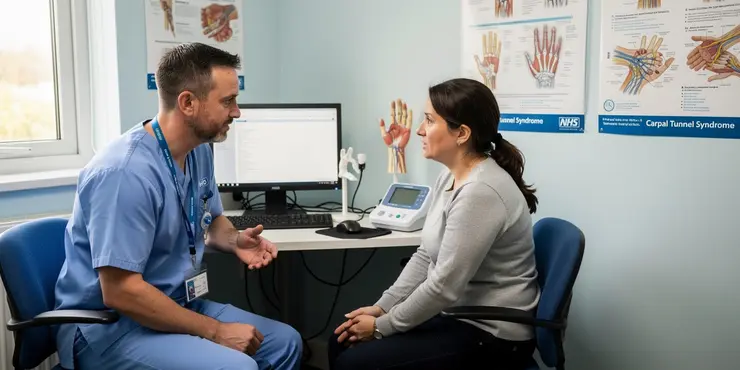
What causes Carpal Tunnel Syndrome?
Relevance: 22%
-
Can weight loss medications cause fatigue?
Relevance: 22%
-
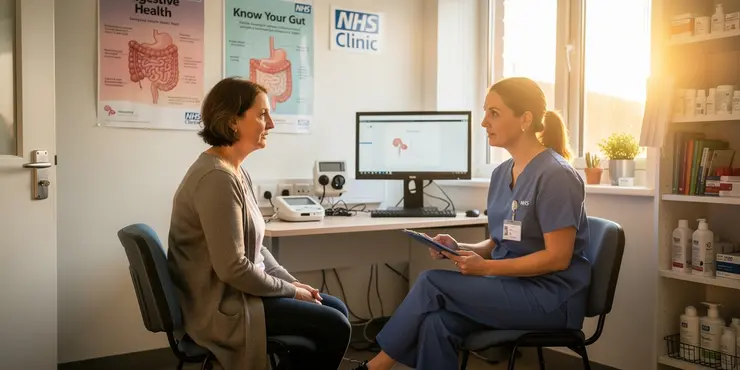
About irritable bowel syndrome (IBS)
Relevance: 22%
-
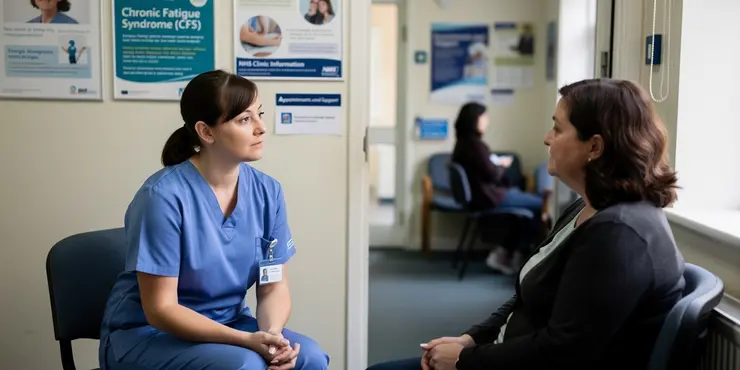
Why is it important to increase awareness about CFS?
Relevance: 22%
-

What is Carpal Tunnel Syndrome (CTS)?
Relevance: 22%
-

Having a child with Down's syndrome | NHS
Relevance: 22%
-

Down's syndrome: Emily's story | NHS
Relevance: 21%
-
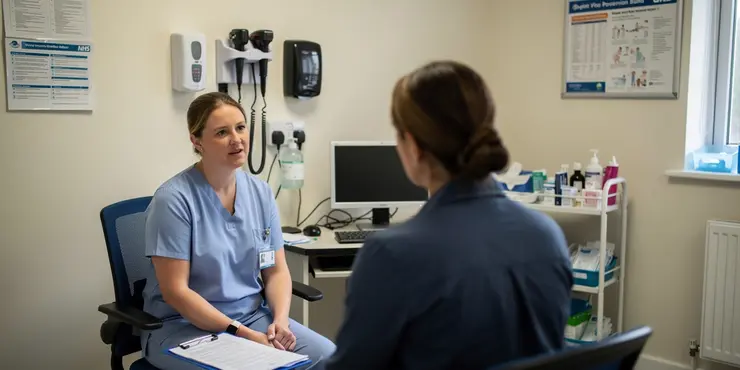
What is post-treatment Lyme disease syndrome (PTLDS)?
Relevance: 21%
-
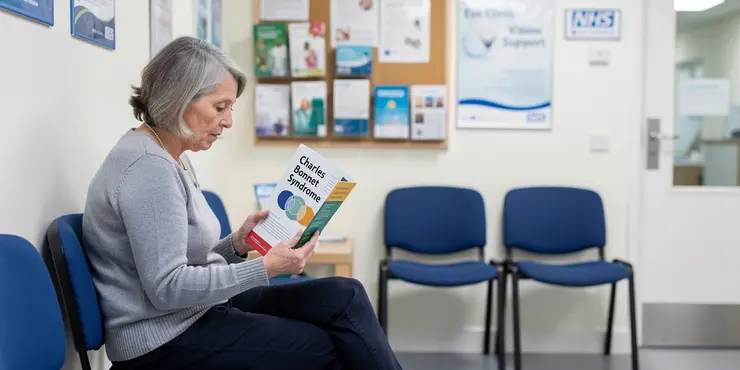
Charles Bonnet Syndrome
Relevance: 21%
-

What is congenital rubella syndrome?
Relevance: 21%
-
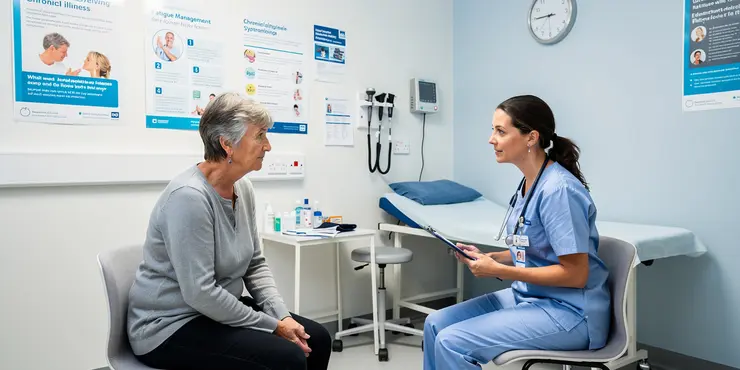
Can CFS symptoms fluctuate over time?
Relevance: 21%
-

Managing Chronic Illness Within the Family
Relevance: 21%
-
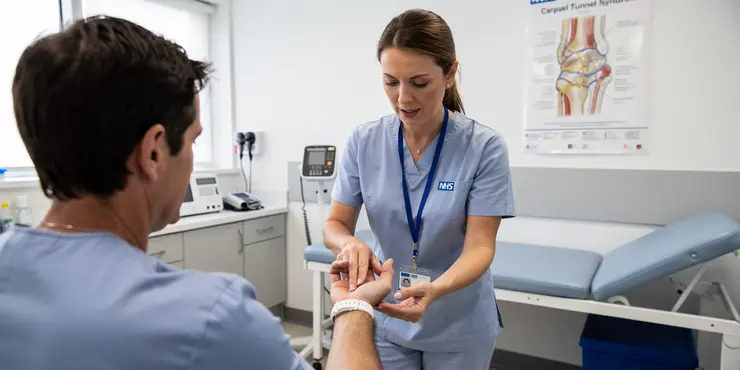
Is Carpal Tunnel Syndrome covered by the NHS?
Relevance: 21%
-

Turner syndrome: Beyond the classic XO phenotype
Relevance: 21%
-
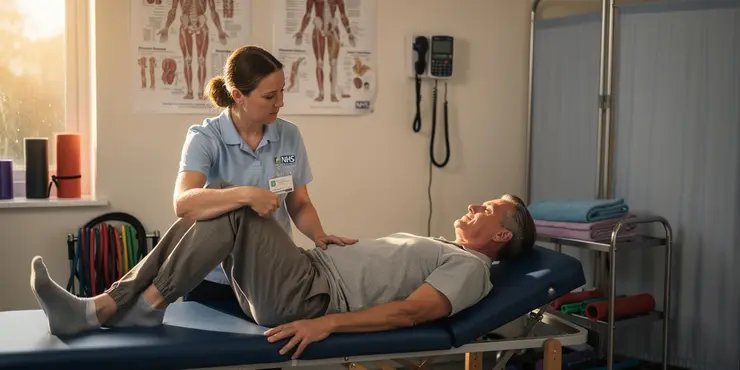
Exercises for sciatica: piriformis syndrome | NHS
Relevance: 21%
Understanding Myalgic Encephalomyelitis/Chronic Fatigue Syndrome (ME/CFS)
What is ME/CFS?
Myalgic Encephalomyelitis, also known as Chronic Fatigue Syndrome (ME/CFS), is a long-term neurological condition characterized by extreme fatigue that doesn't improve with rest and can be worsened by physical or mental activity. The precise cause of ME/CFS is not fully understood, and it affects people in different ways.Symptoms of ME/CFS
The most common symptom is severe, persistent fatigue. Other symptoms include muscle and joint pain, sleep disturbances, headaches, sore throat, and tender lymph nodes. Cognitive difficulties such as memory problems, concentration issues, and mental fog (often called 'brain fog') are also prevalent among sufferers. Symptoms can vary day-to-day and can fluctuate in severity.Diagnosing ME/CFS
Diagnosing ME/CFS can be challenging due to its complex nature and overlapping symptoms with other conditions. There is no specific test for ME/CFS; thus, diagnosis primarily involves a detailed medical history, physical examination, and ruling out other potential causes of fatigue. According to the NHS, a diagnosis might be considered if a patient has experienced severe fatigue for six months or longer alongside other symptoms characteristic of ME/CFS.Management and Treatment
Currently, there is no cure for ME/CFS, but various treatments can help manage symptoms. Lifestyle changes such as graded exercise therapy (GET) and cognitive behavioral therapy (CBT) have been recommended by healthcare providers. Additionally, pain relief, dietary changes, and sleep management strategies may be beneficial. Patients are advised to follow a balanced approach to activity and rest to avoid symptom flare-ups.Living with ME/CFS
Living with ME/CFS requires adjustments to daily routines and may significantly impact quality of life. Patients often need to pace their activities and incorporate rest to manage energy levels. Support from healthcare professionals, family, and ME/CFS support groups can play a critical role in coping with the condition. Employment and education accommodations may also be necessary.Support for ME/CFS in the UK
In the UK, the NHS provides resources and support for those living with ME/CFS. Patients can access guidance from general practitioners, specialized clinics, and various support organizations. It is crucial for sufferers to seek medical advice and connect with these resources to receive comprehensive care and improve their overall well-being.Understanding ME/CFS
What is ME/CFS?
ME/CFS stands for Myalgic Encephalomyelitis or Chronic Fatigue Syndrome. It is a health condition that makes you feel very tired. Resting does not help, and being active can make it worse. We do not fully know what causes ME/CFS, and it can affect people differently.Symptoms of ME/CFS
The biggest sign of ME/CFS is feeling extremely tired all the time. Other signs include pain in muscles and joints, trouble sleeping, headaches, sore throat, and tender spots in the neck. People with ME/CFS may also have trouble remembering things or concentrating, which is often called 'brain fog.' Symptoms can change from day to day and can get better or worse.Diagnosing ME/CFS
It is hard to diagnose ME/CFS because it is complicated and has symptoms similar to other illnesses. There is no special test for ME/CFS. Doctors will look at your medical history, do physical exams, and rule out other causes of tiredness. The NHS says a person might have ME/CFS if they feel very tired for six months or more and have other ME/CFS symptoms.Management and Treatment
There is no cure for ME/CFS, but there are ways to help with symptoms. Doctors may suggest gentle exercise and talking therapy to help feel better. Using pain relief, eating healthy, and getting good sleep can also help. Doing a little bit of activity and resting can keep symptoms from getting worse.Living with ME/CFS
Living with ME/CFS means making changes to your daily life. You may have to plan when to do things and rest often. Help from doctors, family, and support groups is important. You may also need changes at work or school to help you cope.Support for ME/CFS in the UK
In the UK, the NHS offers help for people with ME/CFS. You can talk to your doctor for advice, visit special clinics, and join support groups. Getting medical advice and using these resources can help you feel better and manage your health.Frequently Asked Questions
What is Myalgic Encephalomyelitis/Chronic Fatigue Syndrome (ME/CFS)?
Myalgic Encephalomyelitis/Chronic Fatigue Syndrome (ME/CFS) is a long-term condition that causes persistent fatigue and other symptoms that do not improve with rest or are worsened by physical or mental activity.
What are the symptoms of ME/CFS?
Symptoms of ME/CFS include severe fatigue, muscle and joint pain, headaches, sleeping problems, and issues with thinking, memory, and concentration. Symptoms can vary from person to person.
How is ME/CFS diagnosed?
ME/CFS is diagnosed based on the patient’s medical history, symptoms, and ruling out other conditions that might be causing similar symptoms. There is no specific test to diagnose ME/CFS.
Who can get ME/CFS?
ME/CFS can affect anyone, including children, but it is more common in women and often starts during mid-20s to mid-40s.
What causes ME/CFS?
The exact cause of ME/CFS is unknown, but it may be triggered by infections, immune system problems, hormonal imbalances, or psychological stress.
Is there a cure for ME/CFS?
There is currently no cure for ME/CFS. Treatment focuses on managing symptoms and improving quality of life.
What treatments are available for ME/CFS?
Treatment options may include medications to manage pain and sleep problems, cognitive behavioral therapy (CBT), graded exercise therapy (GET), and lifestyle changes such as pacing activities.
How can people with ME/CFS manage their energy levels?
People with ME/CFS can manage their energy levels by pacing activities, taking regular rest breaks, and prioritising tasks to avoid overexertion.
Can diet affect ME/CFS symptoms?
While there is no specific diet for ME/CFS, maintaining a balanced diet with proper nutrition can help manage symptoms and improve overall health.
Are there support groups for people with ME/CFS?
Yes, there are support groups for people with ME/CFS where they can share experiences, find emotional support, and get practical advice. These can be found both online and in local communities.
How does ME/CFS affect daily life?
ME/CFS can significantly impact daily life, making it difficult to perform routine activities, maintain employment, and participate in social interactions due to persistent fatigue and other symptoms.
Can children be diagnosed with ME/CFS?
Yes, children can be diagnosed with ME/CFS, though it may be more challenging to diagnose in young people due to the overlap with other childhood illnesses and developmental issues.
Is ME/CFS a lifelong condition?
ME/CFS can be a lifelong condition for some people, but others may experience periods of improvement or even complete remission.
What is the role of healthcare professionals in managing ME/CFS?
Healthcare professionals play a crucial role in diagnosing ME/CFS, providing medical treatments for symptom management, offering guidance on lifestyle adjustments, and connecting patients with support resources.
What research is being done on ME/CFS?
Research on ME/CFS is ongoing, focusing on understanding the underlying causes, developing effective treatments, and improving diagnostic criteria to better assist those affected by the condition.
What is ME/CFS?
ME/CFS stands for Myalgic Encephalomyelitis/Chronic Fatigue Syndrome.
It is a health problem that makes people feel very tired and weak all the time.
This tiredness does not go away with sleep or rest.
If you need help understanding, you can:
- Ask someone to explain it to you.
- Use a computer or phone to read the text out loud.
- Look for videos about ME/CFS.
Myalgic Encephalomyelitis/Chronic Fatigue Syndrome (ME/CFS) is a health problem. It makes you feel very tired for a long time. Resting or sleeping does not help you feel better. Doing things like running or thinking hard can make the tiredness worse.
What signs show you might have ME/CFS?
People with ME/CFS feel very tired. They might have sore muscles and joints. They can get headaches and have trouble sleeping. It might be hard for them to think, remember things, and pay attention. These problems can be different for everyone.
How do doctors know if someone has ME/CFS?
Doctors use special tests to see if a person has ME/CFS. ME/CFS makes people feel very tired and sick. It is hard to know if someone has ME/CFS because these problems can happen in other illnesses too.
Doctors will:
- Listen to how the person feels.
- Ask many questions about tiredness and other feelings.
- Do some tests to make sure they do not have other illnesses.
If you find reading hard, it can help to:
- Ask someone to read with you.
- Use a ruler or finger to follow the words.
- Take breaks and read in a quiet place.
Doctors find out if someone has ME/CFS by looking at their health story and symptoms. They also make sure it's not something else causing the problems. There isn't a special test for ME/CFS.
Who can get ME/CFS?
Anyone can get ME/CFS. Kids and grown-ups can have it.
If you want help to understand more, you can:
- Talk to a doctor.
- Ask a family member to help explain.
- Use pictures or videos to learn.
Anyone can get ME/CFS, even kids. But it happens more to women. It usually starts when people are between 20 and 40 years old.
What causes ME/CFS?
ME/CFS stands for Myalgic Encephalomyelitis/Chronic Fatigue Syndrome. It is a sickness that makes people feel very tired and unwell.
Doctors do not know exactly what causes ME/CFS. Some people get it after they have been sick with a virus. Others might get it after a lot of stress or worry.
Here are some ideas of what might cause it:
- Having a virus or an illness that does not go away.
- Feeling too much stress or worry for a long time.
- Problems with how the body fights sickness, called the immune system.
If you feel very tired and sick for a long time, it is important to talk to a doctor. They can help and give advice.
We do not know exactly what causes ME/CFS. It might start after getting sick, having problems with the immune system, changes in hormones, or feeling very stressed.
Is there a cure for ME/CFS?
Right now, there is no cure for ME/CFS. But doctors are working hard to find one. ME/CFS is a sickness that makes you very tired and can give you pain. It is important to rest and stay relaxed. You can talk to your doctor to help feel better.
Tools that can help:
- Use a notebook to track how you feel every day.
- Listen to relaxing music.
- Use guided relaxation or meditation apps to help calm your mind.
Right now, we can't make ME/CFS go away completely. Doctors help people feel better by treating the symptoms and helping them live a good life.
What can help someone with ME/CFS?
ME/CFS can make people very tired and hurt sometimes. Here are some ways to help:
- Rest: It’s important to get plenty of rest and not do too much.
- Healthy Food: Eating good food like fruits, vegetables, and whole grains can help.
- Doctor’s Help: Doctors can help make a plan that is right for each person.
- Meds: Sometimes doctors give medicine to help with pain or sleep.
- Talking to Someone: Talking to a therapist or in a group can make things easier.
- Keeping Track: Writing down how you feel each day can help you see what makes you feel better or worse.
Remember, it's okay to ask for help and take things slowly. You don’t have to do it all at once!
There are different ways to help you feel better. You might take medicine to help with pain and to sleep better. Talking to a therapist can help you think in positive ways. Doing gentle exercises and making changes in your daily routine can also help. Pace yourself by doing a little at a time and resting when you need to.
How can people with ME/CFS manage their energy levels?
People with ME/CFS often feel very tired. Here are some ways to help them save energy:
- Plan Your Day: Make a simple plan for what you want to do. Do not try to do too much at once.
- Rest Often: Take lots of short breaks. Resting helps your body to recover.
- Do Easy Activities: Choose activities that do not use too much energy, like reading or drawing.
- Ask for Help: It is okay to ask others for help with things.
Using a timer or alarm can be a helpful tool to remind you to rest.
People with ME/CFS can take care of their energy by doing a few things. They can spread out activities, take lots of rest breaks, and decide which tasks are most important to do first. This helps them not get too tired.
Can food change how you feel with ME/CFS?
Does what you eat change your ME/CFS symptoms?
Eating well can help you feel better. Try eating healthy foods like fruits, vegetables, and whole grains.
Keeping a food diary might help you see what foods make you feel good or bad. You can write down what you eat and how you feel afterwards.
Ask a grown-up, like a doctor or a dietitian, for help with your food choices. They can give you good advice on what to eat.
There is no special food for people with ME/CFS, but eating healthy foods can help you feel better.
Can people with ME/CFS find groups for help?
Yes, there are groups to help people with ME/CFS.
ME/CFS is a health problem. It can make you very tired.
Joining a group can make you feel better. You can talk to others who understand.
Here are some ways to find these groups:
- Ask your doctor or nurse.
- Look online for ME/CFS support groups.
- Check local health centers or community boards.
It’s good to talk to people who know how you feel.
Yes, there are groups that help people with ME/CFS. In these groups, people can talk about what they go through, get support, and learn useful tips. You can find these groups online or in your town.
What is it like to live with ME/CFS?
ME/CFS is a sickness that makes people very tired. It can make it hard to do things every day. People might feel very tired even after sleeping. It's like running out of energy quickly. This can make going to school, playing, or working hard.
If you know someone with ME/CFS, it’s good to be kind and patient. Sometimes, they need to rest more than others. Using a calendar or making a list can help them remember things they need to do. Talking to a grown-up or a doctor can also help.
ME/CFS is an illness that can make everyday life hard. It can be tough to do normal things like work or see friends because it makes you feel very tired all the time.
Can doctors say if kids have ME/CFS?
Doctors can check if a child has ME/CFS. ME/CFS makes you feel very tired and weak. It can also make it hard to do school or play. Parents and teachers can help. Doctors can give advice too.
If you are worried, talk to a doctor. They can find out what's wrong. It might help to use a diary. Write down when you feel tired. This can help the doctor understand.
Yes, doctors can say if kids have ME/CFS. But it can be harder to tell because other kid sicknesses and growing changes can look the same.
Does ME/CFS last forever?
ME/CFS is a sickness that makes you very tired.
For some people, this sickness does not go away.
But other people feel better after some time.
If you have ME/CFS and want help, you can:
- Talk to a doctor. They can help you understand your sickness.
- Rest a lot. This can help your body feel better.
- Write down when you feel very tired. This can show any patterns.
- Ask friends or family for help with things you find hard to do.
Remember, it is okay to ask for help.
Some people have ME/CFS for a long time. But others might get better for a while, or they might even feel completely okay again.
What do doctors and nurses do to help people with ME/CFS?
Doctors and nurses help people who have ME/CFS feel better.
Here are some ways they help:
- Listen to how you feel and what problems you have.
- Help you find ways to feel less tired.
- Teach you how to do things in a way that doesn't make you too tired.
- Give you medicine if you need it.
If you have trouble understanding, ask someone to explain in a way that you can understand.
Doctors and nurses help people with ME/CFS. They find out if someone has it and give medicine to help with symptoms. They also give advice on how to live better and find support groups.
What are people learning about ME/CFS?
Many smart people are studying ME/CFS. They want to understand it better.
Here are some ways they are learning:
- They look at what is happening inside the body.
- They see how it changes the way people feel and do things.
- They try different medicines to see if they help.
- They talk to people with ME/CFS to learn from their stories.
These studies help doctors help people feel better. We can learn from others and share our own experiences, too.
Scientists are working hard to learn more about ME/CFS. They want to know what causes it, find ways to help people get better, and make it easier for doctors to know if someone has it.
Useful Links
This website offers general information and is not a substitute for professional advice.
Always seek guidance from qualified professionals.
If you have any medical concerns or need urgent help, contact a healthcare professional or emergency services immediately.
Some of this content was generated with AI assistance. We’ve done our best to keep it accurate, helpful, and human-friendly.
- Ergsy carfully checks the information in the videos we provide here.
- Videos shown by Youtube after a video has completed, have NOT been reviewed by ERGSY.
- To view, click the arrow in centre of video.
- Most of the videos you find here will have subtitles and/or closed captions available.
- You may need to turn these on, and choose your preferred language.
- Go to the video you'd like to watch.
- If closed captions (CC) are available, settings will be visible on the bottom right of the video player.
- To turn on Captions, click settings .
- To turn off Captions, click settings again.
More Items From Ergsy search
-

Myalgic encephalomyelitis or chronic fatigue syndrome (ME/CFS) | NHS
Relevance: 100%
-

Is chronic fatigue syndrome contagious?
Relevance: 82%
-
What is chronic fatigue syndrome?
Relevance: 79%
-

What causes chronic fatigue syndrome?
Relevance: 79%
-

Are there psychological aspects to chronic fatigue syndrome?
Relevance: 72%
-
Can children develop chronic fatigue syndrome?
Relevance: 72%
-

What role do infections play in chronic fatigue syndrome?
Relevance: 70%
-
Is chronic fatigue syndrome a mental illness?
Relevance: 70%
-

Who is at risk of developing chronic fatigue syndrome?
Relevance: 67%
-

How is chronic fatigue syndrome treated?
Relevance: 61%
-

Is there a cure for chronic fatigue syndrome?
Relevance: 61%
-

How is chronic fatigue syndrome diagnosed?
Relevance: 58%
-

Can chronic fatigue syndrome be managed with lifestyle changes?
Relevance: 52%
-

How does CFS differ from regular fatigue?
Relevance: 45%
-

How does post-exertional malaise relate to CFS?
Relevance: 32%
-

What is the prognosis for someone with CFS?
Relevance: 32%
-

Can CFS be prevented?
Relevance: 30%
-

What is Cushing's syndrome?
Relevance: 27%
-

What is irritable bowel syndrome (IBS)?
Relevance: 25%
-

Prader-Willi Syndrome | NHS
Relevance: 24%
-

Can fatigue result in dangerous driving?
Relevance: 23%
-

Carpal Tunnel Syndrome
Relevance: 23%
-

Munchausen's syndrome | NHS
Relevance: 23%
-

Does physical exercise help people with CFS?
Relevance: 23%
-

Symptoms of irritable bowel syndrome (IBS)
Relevance: 23%
-

What causes Carpal Tunnel Syndrome?
Relevance: 22%
-
Can weight loss medications cause fatigue?
Relevance: 22%
-

About irritable bowel syndrome (IBS)
Relevance: 22%
-

Why is it important to increase awareness about CFS?
Relevance: 22%
-

What is Carpal Tunnel Syndrome (CTS)?
Relevance: 22%
-

Having a child with Down's syndrome | NHS
Relevance: 22%
-

Down's syndrome: Emily's story | NHS
Relevance: 21%
-

What is post-treatment Lyme disease syndrome (PTLDS)?
Relevance: 21%
-

Charles Bonnet Syndrome
Relevance: 21%
-

What is congenital rubella syndrome?
Relevance: 21%
-

Can CFS symptoms fluctuate over time?
Relevance: 21%
-

Managing Chronic Illness Within the Family
Relevance: 21%
-

Is Carpal Tunnel Syndrome covered by the NHS?
Relevance: 21%
-

Turner syndrome: Beyond the classic XO phenotype
Relevance: 21%
-

Exercises for sciatica: piriformis syndrome | NHS
Relevance: 21%


